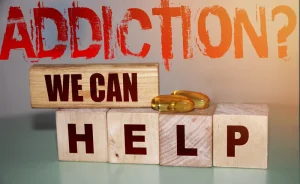
Mason says she’s studied Otezla, a drug that is normally used to treat psoriasis, for alcohol use disorder. A new study published in December 2022 reported that patients who took Naltrexone before they expected to drink eventually saw nausea resolve itself once they adjusted to the drug. The medications listed below are related to or used in the treatment of this condition.
Allergy, Cold, and Flu Medications

When used under medical supervision, the combination can be an effective way to treat alcohol withdrawal. Because addiction can affect so many aspects of a person’s life, treatment should address the needs of the whole person to be successful. Counselors may select from a menu of services that meet the specific medical, mental, social, occupational, family, and legal needs of their patients to help in their recovery. Completing detox does not mean someone is “cured” from their alcohol addiction.
Do not sell my personal information Privacy Policy and Terms of Use

At the time, it was marketed by DuPont under the brand name Trexan. Shortly thereafter, the FDA approved disulfiram to treat alcoholism. It was first manufactured https://ecosoberhouse.com/ by Wyeth-Ayerst Laboratories under the brand name Antabuse. An important first step is to learn more about alcohol use disorder and your treatment options.
Other Medication Interactions
These drugs can also make the effects of alcohol more intense, leading to impaired judgment and sedation. If you have diabetes, drinking alcohol can affect your blood sugar levels. Medications are also available to help treat addiction to alcohol and nicotine. Detoxification is the process by which a person’s body cleanses itself of toxins like alcohol.
- This article discusses alcohol use disorder symptoms and strategies for treatment and intervention.
- A healthcare provider can evaluate the AUD severity and its health impacts, refer you to specialists, and determine the appropriate treatment.
- Patients who took take these medicines often reported severe nausea, which doctors say can cause some of their patients to stop taking the medication altogether because of the side effects.
- The label on your medication may not specifically warn against consuming alcohol while you are taking the drug, so it’s important not to assume that the absence of a warning means it is safe to mix the two.
- Some of these are inpatient or residential programs, where you stay at a treatment center for a while.
- Here’s some information to help you get ready for your appointment, and what to expect from your health care provider or mental health provider.
- If your provider suspects that you have a problem with alcohol, you may be referred to a mental health provider.
- However, just as those with chronic conditions such as asthma or rheumatoid arthritis may have flare-ups of the disease throughout their life, for some alcoholics, relapse is part of the process.
- Many rehab centers will set patients up with aftercare as part of discharging them from a program.
- Medications used to treat insomnia or help you fall and stay asleep should never be mixed with alcohol.
- An important first step is to learn more about alcohol use disorder and your treatment options.
- In general, alcohol use has the potential to make symptoms of a mental health condition worse.
Working to stop alcohol use to improve quality of life is the main treatment goal. Research shows that naltrexone works best for people who have already stopped drinking for at least 4 days when they begin treatment. You take it daily as a pill or get a monthly injection can alcoholism be cured at your health care professional’s office. The medication can help you have fewer days when you drink heavily as well as drink less overall. Not only does AUD affect the health of the person with the disease, but it also impacts the lives of those around them.

Free Healthbeat Signup

You might not need to completely avoid alcohol if you are taking a blood thinner. The American Heart Association (AHA) recommends limiting your intake to no more than one or two occasional drinks if you are on anticoagulant therapy. The following list of medications that shouldn’t be mixed with alcohol isn’t exhaustive. You should always read the label of any medication and check with a doctor to be sure you are safely taking a medication.
